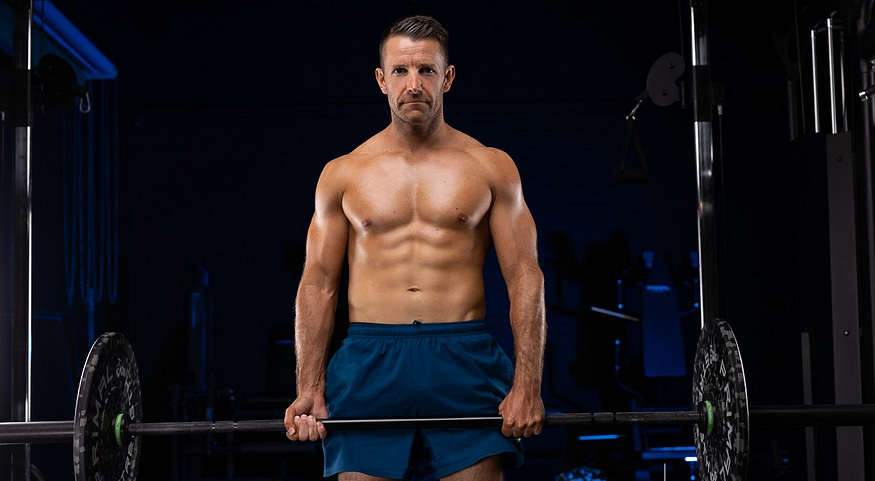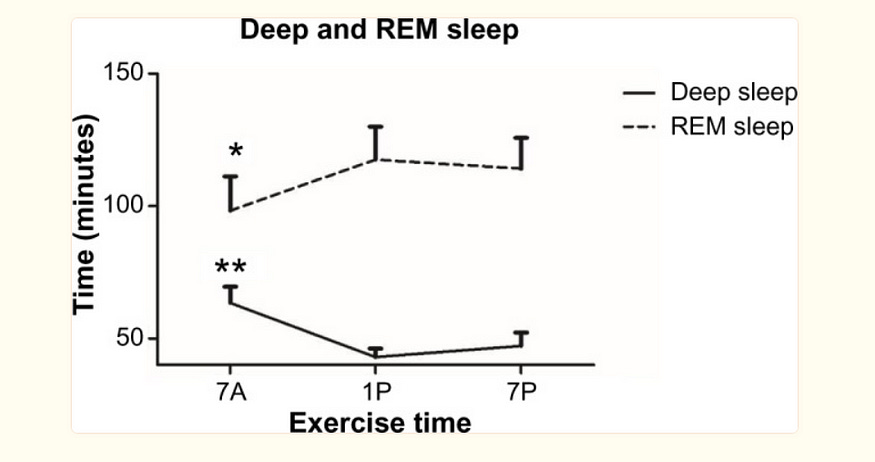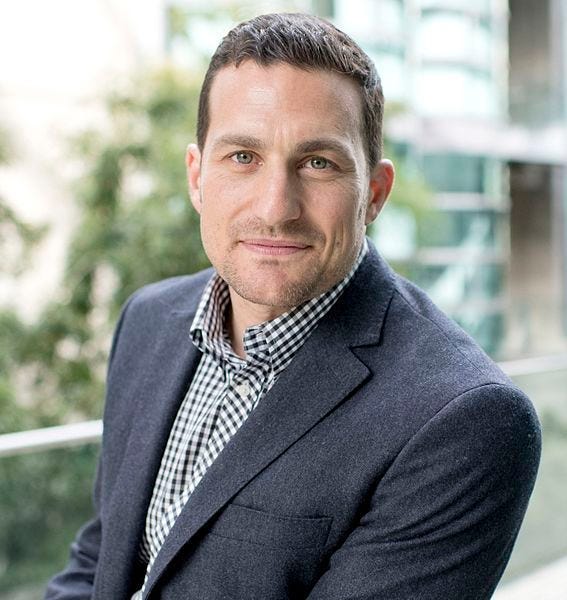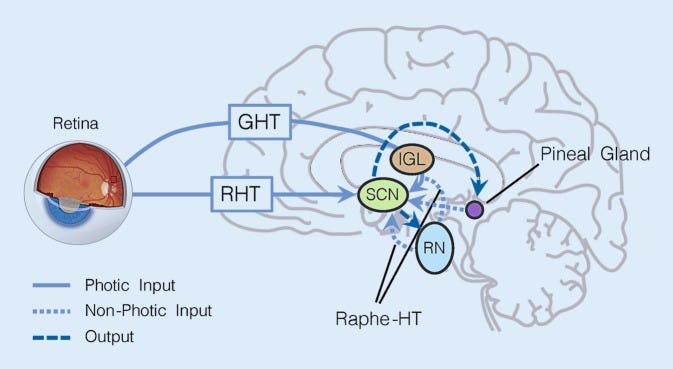Why Early Morning Walks Are a Power Tool for Your Health.
It’s advice I wish I had known from the start.

It’s true.
Audacious early risers who crush workouts and get moving when the sunrises get far better health results.
I used to look at these people like they’d lost their marbles because I was the guy with a sudden burst of energy like I’d been tasered between 10 p.m. and 1:30 a.m.
When I finally hit the pillow, it was like I’d parked on the side of a highway. Getting out of bed the next morning required a rescue team and a dozen snooze buttons to drag me awake.
One study took 20 people with high blood pressure and had them work out for 30 minutes at 7 a.m., 1 p.m., and 7 p.m.
The group that hit the gym at 7 a.m. ended up with lower blood pressure at night, fell asleep faster, and enjoyed deeper, more REM-filled sleep — REM being the holy grail of quality sleep.

So it’s no surprise these dopamine-fueled morning junkies feel like they’ve had a shot in the arm first thing.
That wasn’t me — I used the grind of my career as a perfect excuse to hit snooze.
The never-ending cycle of commuting to work, getting back late, and not having the energy or willpower to drive to the gym and work out on a cold winter evening felt like my kryptonite.
I’d stay up late watching mind-numbing trash on T.V. and repeat the cycle of inconsistency like Groundhog Day.
It’s a loop I broke free from, and so can you.
Let’s dive in.
Supercharge your fitness performance with this one thing.
Winters here in the U.K. can be rough.
I often had to be up in the dark, go to work, and leave for home in the dark, which was soul-destroying for a night owl.
Something significant changed. We had a global pandemic, which, being a single male living alone, gave me anxiety on a level I’d never experienced before.
It was a blessing in disguise because it set off a chain reaction, helping me lose 56+ pounds (Proof here)
I accidentally set the wheels in motion to improve my energy levels by getting out of the office during lunchtime, which I never did during my 10-year career in the corporate world.
I’d now go for a stroll to relieve some of the stress induced by being couped up indoors, in my car and at my office desk, which had plastic shields to separate me from the other staff. Hideous.
What started as a 30–45-minute walk at lunch turned into going for walks in the morning before work.
Famous neuroscientist Andrew Huberman says you should go outside in the first 15 minutes of waking up.
Research shows that this trick amplifies your energy and alertness during the day while significantly improving your sleep at night.
It had a humungous impact on me.
Andrew Huberman — Source
“Sunlight viewing is not some woo biology thing. It’s grounded in the core of our physiology. There are literally hundreds, if not thousands of quality peer-reviewed papers showing that light viewing early in the day is the most powerful stimulus for wakefulness throughout the day, and it has a powerful, positive impact on your ability to fall and stay asleep at night. So this is really the foundational power tool for ensuring a great night’s sleep and for feeling more awake during the day.”

One study found that the light in our surroundings is the most important factor in setting our internal clock.
Our eyes take in this light and send signals to our internal body clock, telling it what time it is.
The research shows that light in our eyes sends signals to a gland in our brain called the Pineal gland, which makes a hormone called melatonin.
Melatonin is a hormone the body produces that helps regulate sleep and improve sleep quality.

Huberman recommends at least 5 minutes of sunshine on a clear day, 10 minutes on a cloudy day, and 20 to 30 minutes on an overcast or rainy day.
Trying to get sunshine through your office window or car windshield doesn’t count, and it doesn’t work.
I did my morning walks without realising it was an ‘actual thing’. But the first noticeable difference was that it reduced my post-lunch and early afternoon slumps.
After a couple of weeks, I started to feel less groggy in the morning and more sleepy in the evening.
At the time, I didn’t associate that first boost in energy with my morning walks, but I do now because it’s as obvious as a slap in the face.
Another study found that early morning sunshine increased evening sleepiness and reduced sleep onset latency, i.e., the time it takes to fall asleep after getting into bed and attempting to sleep.
It also increased “next-morning alertness”, which explains why I didn’t feel like a zombie playing Whac-A-Mole with my alarm clock.
Direct your extra energy as effectively as possible.
Focus on the process.
Early morning walking burns calories, gets your eyes looking into the sun and creates better sleep. It also opens the door to more intense workouts that suddenly don’t feel as difficult to execute.
There’s one mindset hack that nails it all down.
Andrew Huberman:
“You’re less motivated to exercise because you value the reward more than the pursuit”.
My morning walking and that first bit of sunshine resulted in better sleep and more energy. It was like a shot in the arm and a boost of momentum.
I started to set the wheels in motion by going for walks, once in the morning, once at lunch at work and then when I got home after work.
Walking after work turned into 5km runs around my local area. Running was not something I initially found fun, but it was a great way to clear my head, and that’s where my mindset started to change.
I wasn’t running to lose weight. I was running because of the pursuit of the feeling it gave me.
Now, I’m not saying you should get yourself some anxiety lol. I’m saying pursue things with a purpose and do it for the sake of the process, not the reward you’ll receive at the end.
It’s the most sustainable way.
Research shows that attaching a reward to an activity actually makes achieving your goals harder and disrupts consistency. For instance, if I run to burn 350 calories or earn a dessert, it’s a recipe for failure.
Find an activity you love doing. Nothing is more accessible than walking.
Make it something you look forward to, and remove any associated reward. Instead, try and get pleasure from the process like I did with my running.
Huberman says attaching rewards makes exercising consistently hard and creates a significant barrier because we link dopamine to the reward.
Andrew Huberman — Source
“Celebrating the win more than the pursuit actually sets you up for failure in the future, and so this gets us right into something called “dopamine reward prediction error”.
The reward prediction error is basically, if you expect something to be really great and then it’s not quite that great, your dopamine baseline lowers.
That means you not only felt as if you lost because it wasn’t as much a celebration as you thought it would be but that you’re starting from a lower place, meaning you’re less motivated.”
Final Thoughts.
They’re two very contrasting ideas.
The first is a strategy to bleed into your lifestyle if you need help getting up in the morning.
Early morning sunshine gives you wakefulness during the day and helps you sleep at night.
You’ll have fewer slumps during the day and more significant sleep results, plus added energy with more chance of you consistently working out.
Once you have the extra energy, point it as effectively as possible.
If you channel it toward something with an associated reward, realise long term that you are making it harder for yourself.
Changing my mindset to enjoying the process of the pain and not the so-called “reward” has significantly impacted my levels of consistency.
It worked for me.
Why not you?
Special Offer for My Readers
Chris, the online fitness pro who revolutionised my fitness journey, is offering a free discovery call exclusively to my readers.
If you’re ready to transform your fitness and tailor a plan that suits your unique lifestyle, this is your chance.
Click here to book your FREE call with Chris and start your journey towards a healthier, fitter you. (affiliate link).


Such an inspiration for my s l o w mornings.
I will start tomorrow morning.
Thank you very much.